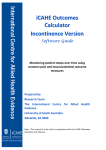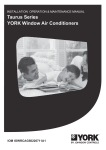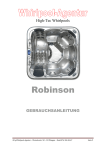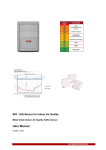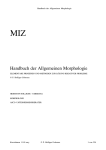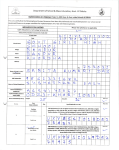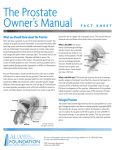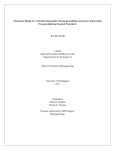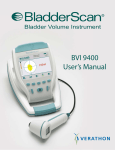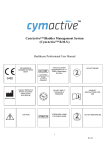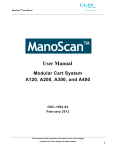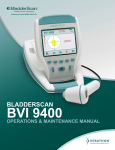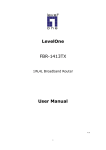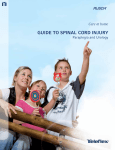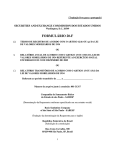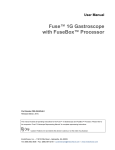Download SCIM-SPINAL CORD INDEPENDENCE MEASURE
Transcript
1 of 3 SCIM-SPINAL CORD INDEPENDENCE MEASURE If form filled out in last 1 year and no changes, Check here ☐ Please clearly circle only one answer for each question. Self-Care 1. Feeding (cutting, opening containers, pouring, bringing food to mouth, holding cup with fluid) 0. Needs parenteral, gastrostomy, or fully assisted oral feeding 1. Needs partial assistance for eating and/or drinking, or for wearing adaptive devices 2. Eats independently; needs adaptive devices or assistance only for cutting food and/or pouring and/or opening containers 3. Eats and drinks independently; does not require assistance or adaptive devices 2. Bathing (soaping, washing, drying body and head, manipulating water tap). A-upper body; B-lower body A. 0. Requires total assistance 1. Requires partial assistance 2. Washes independently with adaptive devices or in a specific setting (e.g., bars, chair) 3. Washes independently; does not require adaptive devices or specific setting (not customary for healthy people) (adss) B. 0. Requires total assistance 1. Requires partial assistance 2. Washes independently with adaptive devices or in a specific setting (adss) 3. Washes independently; does not require adaptive devices (adss) or specific setting 3. Dressing (clothes, shoes, permanent orthoses: dressing, wearing, undressing). A-upper body; B-lower body A. 0. Requires total assistance 1. Requires partial assistance with clothes without buttons, zippers or laces (cwobzl) 2. Independent with cwobzl; requires adaptive devices and/or specific settings (adss) 3. Independent with cwobzl; does not require adss; needs assistance or adss only for bzl 4. Dresses (any cloth) independently; does not require adaptive devices or specific setting B. 0. Requires total assistance 1. Requires partial assistancewith clothes without buttons, zippers or laces (cwobzl) 2. Independent with cwobzl; requires adaptive devices and/or specific settings (adss) 3. Independent with cwobzl without adss; needs assistance or adss only for bzl 4. Dresses (any cloth) independently; does not require adaptive devices or specific setting 4. Grooming (washing hands and face, brushing teeth, combing hair, shaving, applying makeup) 0. Requires total assistance 1. Requires partial assistance 2. Grooms independently with adaptive devices 3. Grooms independently without adaptive devices SUBTOTAL (0-20) SCIM-SPINAL CORD INDEPENDENCE MEASURE Respiration and Sphincter Management 5. Respiration 0. Requires tracheal tube (TT) and permanent or intermittent assisted ventilation (IAV) 2. Breathes independently with TT; requires oxygen, much assistance in coughing or TT management 4. Breathes independently with TT; requires little assistance in coughing or TT management 6. Breathes independently without TT; requires oxygen, much assistance in coughing, a mask (e.g., peep) or IAV (bipap) 8. Breathes independently without TT; requires little assistance or stimulation for coughing 10. Breathes independently without assistance or device 6. Sphincter Management - Bladder 0. Indwelling catheter 3. Residual urine volume (RUV) > 100cc; no regular catheterization or assisted intermittent catheterization 6. RUV < 100cc or intermittent self-catheterization; needs assistance for applying drainage instrument 9. Intermittent self-catheterization; uses external drainage instrument; does not need assistance for applying 11. Intermittent self-catheterization; continent between catheterizations; does not use external drainage instrument 13. RUV <100cc; needs only external urine drainage; no assistance is required for drainage 15. RUV <100cc; continent; does not use external drainage instrument 7. Sphincter Management - Bowel 0. Irregular timing or very low frequency (less than once in 3 days) of bowel movements 5. Regular timing, but requires assistance (e.g., for applying suppository); rare accidents (less than twice a month) 8. Regular bowel movements, without assistance; rare accidents (less than twice a month) 10. Regular bowel movements, without assistance; no accidents 8. Use of Toilet (perineal hygiene, adjustment of clothes before/after, use of napkins or diapers). 0. Requires total assistance 1. Requires partial assistance; does not clean self 2. Requires partial assistance; cleans self independently 4. Uses toilet independently in all tasks but needs adaptive devices or special setting (e.g., bars) 5. Uses toilet independently; does not require adaptive devices or special setting) SUBTOTAL (0-40) 2 of 3 SCIM-SPINAL CORD INDEPENDENCE MEASURE 3 of 3 Mobility (room and toilet) 9. Mobility in Bed and Action to Prevent Pressure Sores 0. Needs assistance in all activities: turning upper body in bed, turning lower body in bed, sitting up in bed, doing push-ups in wheelchair, with or without adaptive devices, but not with electric aids 2. Performs one of the activities without assistance 4. Performs two or three of the activities without assistance 6. Performs all the bed mobility and pressure release activities independently 10. Transfers: bed-wheelchair (locking wheelchair, lifting footrests, removing and adjusting arm rests, transferring, lifting feet). 0. Requires total assistance 1. Needs partial assistance and/or supervision, and/or adaptive devices (e.g., sliding board) 2. Independent (or does not require wheelchair) 11. Transfers: wheelchair-toilet-tub (if uses toilet wheelchair: transfers to and from; if uses regular wheelchair: locking wheelchair, lifting footrests,removing and adjusting armrests, transferring, lifting feet) 0. Requires total assistance 1. Needs partial assistance and/or supervision, and/or adaptive devices (e.g., grab-bars) 2. Independent (or does not require wheelchair) Mobility (indoors and outdoors, on even surface) 12. Mobility Indoors 0. Requires total assistance 1. Needs electric wheelchair or partial assistance to operate manual wheelchair 2. Moves independently in manual wheelchair 3. Requires supervision while walking (with or without devices) 4. Walks with a walking frame or crutches (swing) 5. Walks with crutches or two canes (reciprocal walking) 6. Walks with one cane 7. Needs leg orthosis only 8. Walks without walking aids 13. Mobility for Moderate Distances (10-100 meters) 0. Requires total assistance 1. Needs electric wheelchair or partial assistance to operate manual wheelchair 2. Moves independently in manual wheelchair 3. Requires supervision while walking (with or without devices) 4. Walks with a walking frame or crutches (swing) 5. Walks with crutches or two canes (reciprocal walking) 6. Walks with one cane 7. Needs leg orthosis only 8. Walks without walking aids 14. Mobility Outdoors (more than 100 meters) 0. Requires total assistance 1. Needs electric wheelchair or partial assistance to operate manual wheelchair 2. Moves independently in manual wheelchair 3. Requires supervision while walking (with or without devices) 4. Walks with a walking frame or crutches (swing) 5. Walks with crutches or two canes (reciprocal waking) 6. Walks with one cane 7. Needs leg orthosis only 8. Walks without walking aids 15. Stair Management 0. Unable to ascend or descend stairs 1. Ascends and descends at least 3 steps with support or supervision of another person 2. Ascends and descends at least 3 steps with support of handrail and/or crutch or cane 3. Ascends and descends at least 3 steps without any support or supervision 16. Transfers: wheelchair-car (approaching car, locking wheelchair, removing arm and footrests, transferring to and from car, bringing wheelchair into and out of car) 0. Requires total assistance 1. Needs partial assistance and/or supervision and/or adaptive devices 2. Transfers independent; does not require adaptive devices (or does not require wheelchair) 17. Transfers: ground-wheelchair 0. Requires assistance 1. Transfers independent with or without adaptive devices (or does not require wheelchair) SUBTOTAL (0-40) SF-8 Health Survey Please circle only one answer for each question 1. Overall, how would you rate your health in the past 4 weeks? Excellent Very good Good Fair Poor Very poor 2. During the past 4 weeks, how much did physical health problems limit your usual physical activities (such as walking or climbing stairs)? Could not do Not at all Very little Somewhat Quite a lot physical activities 3. During the past 4 weeks, how much difficulty did you have doing your daily work, both at home and away from home, because of your physical health? Could not do None at all A little bit Some Quite a lot daily work 4. How much bodily pain have you had in the past 4 weeks? None Very mild Mild Moderate Severe Very Severe 5. During the past 4 weeks, how much energy did you have? Very much Quite a lot Some A little None 6. During the past 4 weeks, how much did your physical health or emotional problems limit your usual social activities with family or friends? Could not do Not at all Very little Somewhat Quite a lot social activities 7. During the past 4 weeks, how much have you been bothered by emotional problems (such as feeling anxious, depressed or irritable)? Not at all Slightly Moderately Quite a lot Extremely 8. During the past 4 weeks, how much did personal or emotional problems keep you from doing your usual work, school or other daily activities? Could not Not at all Very little Somewhat Quite a lot do daily activities Page 1 of 4 Subj #: 34135 Date: / / OU Physicians UROLOGY CLINIC Voiding Dys: (SIDI-F) Patient Name: ____________________________ (Patient name is not stored in the database.) Please use a pen to fill in the circle/ box(s) to indicate your choice. Sexual Interest and Desire Inventory - Female (SIDI-F) INTRODUCTION: The following questions are used to assess your feelings of sexual interest or desire as well as some other aspects of your sex life. By sexual desire, I mean your interest in having a sexual experience whether alone or with a partner. Sexual interest involves thoughts, feelings, and/or a willingness to become involved in some sort of sexual activity. Please remember that there are no right or wrong answers to the questions asked. I am most interested in what you feel - not what you think you should feel or what you think others feel. If you do not understand any of the questions, please let me know. The following question asks about your relationship with your partner/spouse. ITEM 1: RELATIONSHIP - SEXUAL How Satisfied are you with the sexual aspect of your relationship with your partner? Dissatisfied Somewhat dissatisfied Neutral Somewhat satisfied Satisfied SEXUAL ACTIVITY Over the past month, approximately how many times did you engage in sexual activity either alone or with your partner? By sexual activity, I am referring to sexual caressing, genital stimulation (including masturbation) or intercourse. Never 1-2 times a month 3-4 times a month More than once a week? ITEM 2: RECEPTIVITY Over the past month, when your partner approached you for sex, how often did you accept? When you accepted, what was your level of enthusiasm? Partner never approached for sex No enthusiasm or did not participate Participated Participated with some solely/primarily interest, but out of obligation little sexual enthusiasm Receptive to partner's approach, interested sexually Sexually enthusiastic and encouraging Infrequent (less than half the time) Often (half the time or more, but not always) Always ITEM 3: INITIATION Over the past month, how frequently did you do anything to encourage sex with your partner? Did not encourage/initiate 1-2 times a month 3-4 times a month More than once a week *Comments: OU Physicians UROLOGY SIDI-F Jan 2007 Bpalmer Page 1 of 4 Voiding Dysfunction: SIDI-F Subj #: Page 2 of 4 34135 Patient Name: ____________________________ (Patient name is not stored in the database.) ITEM 4: DESIRE - FREQUENCY Over the past month, how frequently have you wanted to engage in some kind of sexual activity, either with or without a partner? Never wanted to have sex Not intense at all (fleeting) Mildly intense Moderately intense Extremely intense ITEM 5: AFFECTION Over the past month, how often have you wanted physical affection other than sex, for example touching, holding, kissing? Never wanted to have physical affection Mildly intense Moderately intense Extremely intense How intense would you say was your desire for physical affection? More than once a week but not every day 1-2 times / month How strong was your desire to engage in sex? Please answer this question even if you did not actually engage in any sexual activity but were aware of wanting to be sexual in some way. 3-4 times / month More than once a week Less than once a week Daily ITEM 6: DESIRE - SATISFACTION Over the past month, how satisfied were you with your overall level of sexual desire/interest? Dissatisfied Somewhat dissatisfied Neutral Somewhat satisfied Satisfied ITEM 7: DESIRE - DISTRESS Over the past month, when you thought about sex or were approached for sex, how distressed (worried, concerned, guilty) were you about your level of desire? Never distressed Mildly distressed Moderately distressed Markedly distressed Extremely/Severely distressed *Comments: OU Physicians UROLOGY SIDI-F Jan 2007 Bpalmer Page 2 of 4 Voiding Dysfunction: SIDI-F Subj #: Page 3 of 4 34135 Patient Name: ____________________________ (Patient name is not stored in the database.) ITEM 8: THOUGHTS - POSITIVE How often have you thought about sex over the past month? When you thought about sex, what was your level of interest/strength of desire in having sex? Never thought about sex Never associated with desire Mild desire Moderate desire Intense desire 1-2 times / month 3-4 times / month More than once a week ITEM 9: EROTICA Over the past month, how did you react to sexually suggestive material (e.g. love scenes in movies and on television, erotic pictures/stories in magazines/books)? Not interested Mildly interested Moderately interested Highly interested ITEM 10: AROUSAL - FREQUENCY Over the past month, how often did you become aroused (sexually excited, wet, lubricated, etc.)? No sexual activity Never become aroused Infrequent (less than half the time) Often (half the time or more, but not always) Always ITEM 11: AROUSAL EASE Over the past month, when you had sex, how easily did you become aroused (sexually excited, wet, lubricated, etc.) in response to sexual stimulation? No sexual activity Not at all aroused Aroused with difficulty Aroused somewhat easily Easily aroused ITEM 12: AROUSAL CONTINUATION Over the past month, once you started to become sexually aroused, did you want to receive more stimulation? If yes, how strong was your desire to be further/more sexually stimulated? No sexual activity No desire/Never aroused Little desire Moderate desire Strong desire ITEM 13: ORGASM Over the past month, when you had sex, how often did you have an orgasm? No sexual activity Not able to achieve orgasm How easy was it for you to have an orgasm? Infrequent (less than half the time) Achieved majority of orgasms with some difficulty Achieved majority of orgasms without difficulty Often (half the time or more, but not always) Always *Comments: OU Physicians UROLOGY SIDI-F Jan 2007 Bpalmer Page 3 of 4 Voiding Dysfunction: SIDI-F Subj #: Page 4 of 4 34135 Patient Name: ____________________________ (Patient name is not stored in the database.) DM ITEM 1: RELATIONSHIP - GENERAL How satisfied are you with your relationship as a whole? Dissatisfied Somewhat dissatisfied Neutral Somewhat satisfied Satisfied DM ITEM 2: THOUGHTS - NEGATIVE Over the past month, including this interview, when you think about having sex, do you feel any of the following negative feelings: turned off, anxious, repulsed, sick? Never turned off/felt negative Somewhat turned off/felt somewhat negative Definetly turned off/Strong negative feeling DM ITEM 3: PAIN Over the past month, did you experience genital pain during sex? Yes, and it made me stop Yes, but continued through the pain Yes, but pain was transient No pain No sexual activity DM ITEM 4: MOOD Over the past month, how has your mood been? Have you experienced any feelings of: sadness, hopelessness, helplessness, worthlessness? How often have you had such feelings? Absent or clinically insignificant Moderate (Clear nonverbal signs of sadness, feelings of Mild hoplessness, (Feelings of helplessness, or saness, discouragement, worthlessness low self-esteem, about some aspects of life) pessimism) Severe (Intense sadness, hoplessness about most aspects of life, feelings of complete helplessness or worthlessness) Very Severe (Extreme sadness; intractable hoplessness or helplessness) Infrequent (less than half your waking hours) Often (half your waking hours or more, but not always) Alway s DM ITEM 5: FATIGUE Over the past month, did you experience fatigue, tiredness, or loss of energy? How often did you experience fatigue, tiredness, or loss of energy? Absent or clinically insignificant Mild (mild tiredness, loss of enerty, fatigue, feelings of heaviness in limbs or being weighted down) Moderate to Marked (prominent tiredness, loss of energy, fatigue, feelings of heaviness in limbs or being weighted down) Infrequent (less than half your waking hours) Often (half your waking hours or more, but not always) Always *Comments: OU Physicians UROLOGY SIDI-F Jan 2007 Bpalmer Page 4 of 4 INCONTINENCE QUESTIONAIRE (UDI-6) Name: ____________________________________________ Date: ________________________ DO YOU EXPEREINCE ANY URINARY INCONTINENCE? _____ YES _____ NO Please circle the number that best describes what you are feeling. Use the following as your guide. (0) (1) (2) (3) Not at All Slightly Moderately Greatly Do you experience, and if so, how much are you bothered by: 1. Frequent urination? (0) (1) (2) (3) 2. Urine leakage related to the felling of urgency? (0) (1) (2) (3) 3. Urine leakage related to physical activity, coughing, or sneezing? (0) (1) (2) (3) 4. Small amounts of urine leakage? (0) (1) (2) (3) 5. Difficulty emptying your bladder? (0) (1) (2) (3) 6. Pain or discomfort in the lower abdomen or genital area? (0) (1) (2) (3) (For physician only) _____ Timed Voiding _____ Double Voiding _____ Conservative Fluid Management _____ Kegel Exercise Program _____ Anti-cholinergic or Other Medical Therapy _____ Urodynamic Evaluation Discussed _____ Surgical Intervention Discussed Physician Signature: ___________________________ Date: ____________ Incontinence Impact Questionnaire – Short Form IIQ-7 Some people find that accidental urine loss may affect their activities, relationships, and feelings. The questions below refer to areas in your life that may have been influenced or changed by your problem. For each question, circle the response that best describes how much your activities, relationships, and feelings are being affected by urine leakage. Has urine leakage affected your: Not at All Slightly Moderately Greatly 1. Ability to do household chores (cooking, housecleaning, laundry)? ................ 0 ................1 ............... 2..................3 2. Physical recreation such as walking, swimming, or other exercise? ......................... 0 ................1 ............... 2..................3 3. Entertainment activities (movies, concerts, etc.)? ............................................ 0 ................1 ............... 2..................3 4. Ability to travel by car or bus more than 30 minutes from home? .......................... 0 ................1 ............... 2..................3 5. Participation in social activities outside your home?...................................... 0 ................1 ............... 2..................3 6. Emotional health (nervousness, depression, etc.)?......................................... 0 ................1 ............... 2..................3 7. Feeling frustrated? ....................................... 0 ................1 ............... 2..................3 Items 1 and 2 = physical activity Item 5 = social/relationships Items 3 and 4 = travel Items 6 and 7 = emotional health Scoring. Item responses are assigned values of 0 for "not at all," 1 for "slightly," 2 for "moderately," and 3 for "greatly." The average score of items responded to is calculated. The average, which ranges from 0 to 3, is multiplied by 33 1/3 to put scores on a scale of 0 to 100. Reference. Uebersax, J.S., Wyman, J. F., Shumaker, S. A., McClish, D. K., Fantl, J. A., & the Continence Program for Women Research Group. (1995). Short forms to assess life quality and symptom distress for urinary incontinence in women: The incontinence impact questionnaire and the urogenital distress inventory. Neurourology and Urodynamics, 14, 131-139. 1 Tools Short Form IIQ-7 -Do not reprint Subject #: 33620 / DATE: / OU Physicians UROLOGY CLINIC ICIQ Patient Name: ____________________________ Please use a pen to fill in the circle/ box(s) to indicate your choice. (Patient name is not stored in the database.) ICIQ Questionnaire It is not uncommon for people to leak urine some of the time. Through your responses to this questionnaire, we will be able to collect data on how many people leak urine, and how much this bothers them. We would be grateful if you could answer the following questions, thinking about how you have been, on average, over the past four weeks. 1. How often do you leak urine? (Select only one choice.) 0 Never 1 About once a week or less 2 Two or Three times a week 3 About once a day 4 Several times a day 5 All the time 2. How much urine do you think you usually leak? 0 None 2 A small amount 4 A moderate amount 6 A large amount 3. Overall, how much does leaking urine interfere with your everyday life? 0 1 2 3 4 5 6 Not at 7 8 9 10 A great deal ICIQ score:(Sum scores 1+2+3 ) 4. When does urine leak? (Select all that apply) Never - Urine does not leak Leaks before you can get to the toilet Leaks when cough or sneeze Leaks when you are asleep Leaks when you are physically active/exercising Leaks when you have finished urinating and are dressed Leaks for no obvious reason Leaks all the time *Comments: OU Physicians UROLOGY ICIQ August 2006 bpalmer Page 1 of 1 Pt Initials:____________ Pt ID No.:____________ OAB-q Short Form Symptom Bother This questionnaire asks about how much you have been bothered by selected bladder symptoms during the past 4 weeks. Please check the box that best describes the extent to which you were bothered by each symptom during the past 4 weeks. There are no right or wrong answers. Please be sure to answer every question. During the past 4 weeks, how bothered were you by. . . 1. An uncomfortable urge to urinate 2. A sudden urge to urinate with little or no warning Not at all A little bit Somewhat Quite a bit A great deal A very great deal 1 2 3 4 5 6 1 2 3 4 5 6 3. Accidental loss of small amounts of urine 1 2 3 4 5 6 4. Nighttime urination 1 2 3 4 5 6 5. Waking up at night because you had to urinate 1 2 3 4 5 6 Urine loss associated with a strong desire to urinate 1 2 3 4 5 6 6. UK OAB-q SF, ver 1.0, 2004 1 Pt Initials:____________ Pt ID No.:____________ For the following questions, please think about your overall bladder symptoms in the past 4 weeks and how these symptoms have affected your life. Please answer each question about how often you have felt this way to the best of your ability. Please check the box that best answers each question. None of the time A little of the time Some of the time A good bit of the time Most of the time All of the time 1. Caused you to plan “escape routes” to toilets in public places? 1 2 3 4 5 6 2. Made you feel like there is something wrong with you? 1 2 3 4 5 6 3. Interfered with your ability to get a good night’s rest? 1 2 3 4 5 6 4. Made you frustrated or annoyed about the amount of time you spend in the toilet? 1 2 3 4 5 6 5. Made you avoid activities away from toilets (i.e., walks, running, hiking)? 1 2 3 4 5 6 1 2 3 4 5 6 7. Caused you to reduce your physical activities (exercising, sports, etc.)? 1 2 3 4 5 6 8. Caused you to have problems with your partner or spouse? 1 2 3 4 5 6 9. Made you uncomfortable while travelling with others because of needing to stop to go to the toilet? 1 2 3 4 5 6 10. Affected your relationships with family and friends? 1 2 3 4 5 6 11. Interfered with getting the amount of sleep you needed? 1 2 3 4 5 6 1 2 3 4 5 6 1 2 3 4 5 6 During the past 4 weeks, how often have your bladder symptoms ... 6. Awakened you during sleep? 12. Caused you embarrassment? 13. Caused you to locate the closest toilet as soon as you arrive at a place you have never been? © Copyright 2004 Pfizer. All rights reserved. UK OAB-q SF, ver 1.0, 2004 2 Neurogenic Bowel Dysfunction Score The number of points for each possible answer is given in parenthesis. Mark only one answer per question. 1. Frequency of defecation ☐ Daily (0) ☐ 2–6 times every week (1) ☐ Less than once a week (6) Points ____ 2. Time used for each defecation ☐ 0–30 min (0) ☐31–60 min (3) ____ ☐More than one hour (7) 3. Uneasiness, headache or perspiration during defecation ☐ No (0) ☐ Yes (2) ____ 4. Regular use of tablets against constipation ☐ No (0) ☐ Yes (2) ____ 5. Regular use of drops against constipation ☐ No (0) ☐ Yes (2) ____ 6. Digital stimulation or evacuation of the anorectum. ☐ Less than once every week (0) ☐ Once or more every week (6) ____ 7. Frequency of fecal incontinence. ☐ Less than once every month (0) ☐ 1–6 times every week (7) ____ ☐ 1–4 times every month (6) ☐ Daily (13) 8. Medication against fecal incontinence. ☐ No (0) ☐ Yes (4) ____ 9. Flatus incontinence. ☐ No (0) ☐ Yes (2) ____ 10. Perianal skin problems. ☐ No (0) ☐ Yes (3) ____ ____ Total NBD score (range 0–47) NBD score Bowel Dysfunction 0–6 7–9 10–13 14 or more Very Minor Minor Moderate Severe














